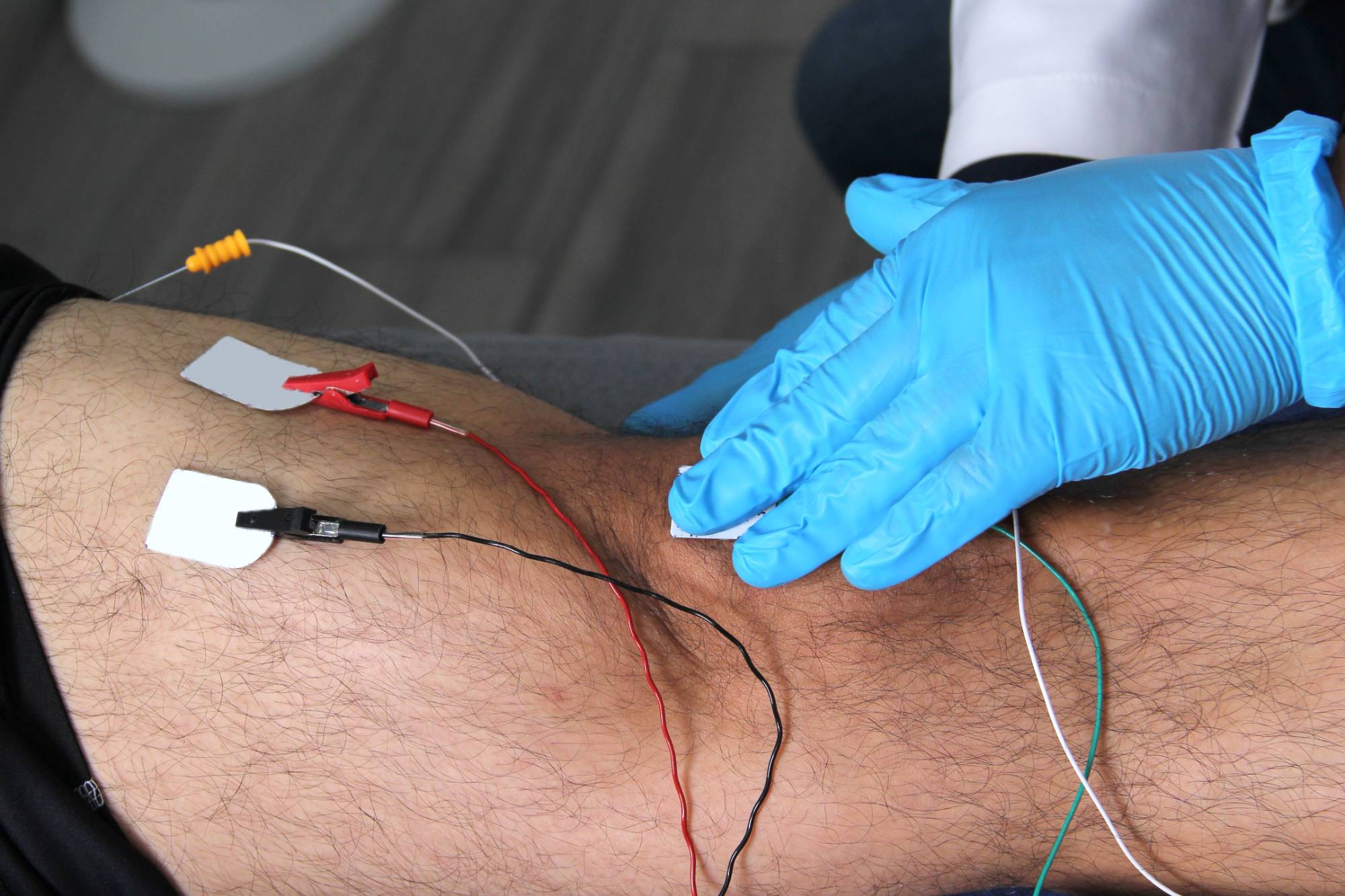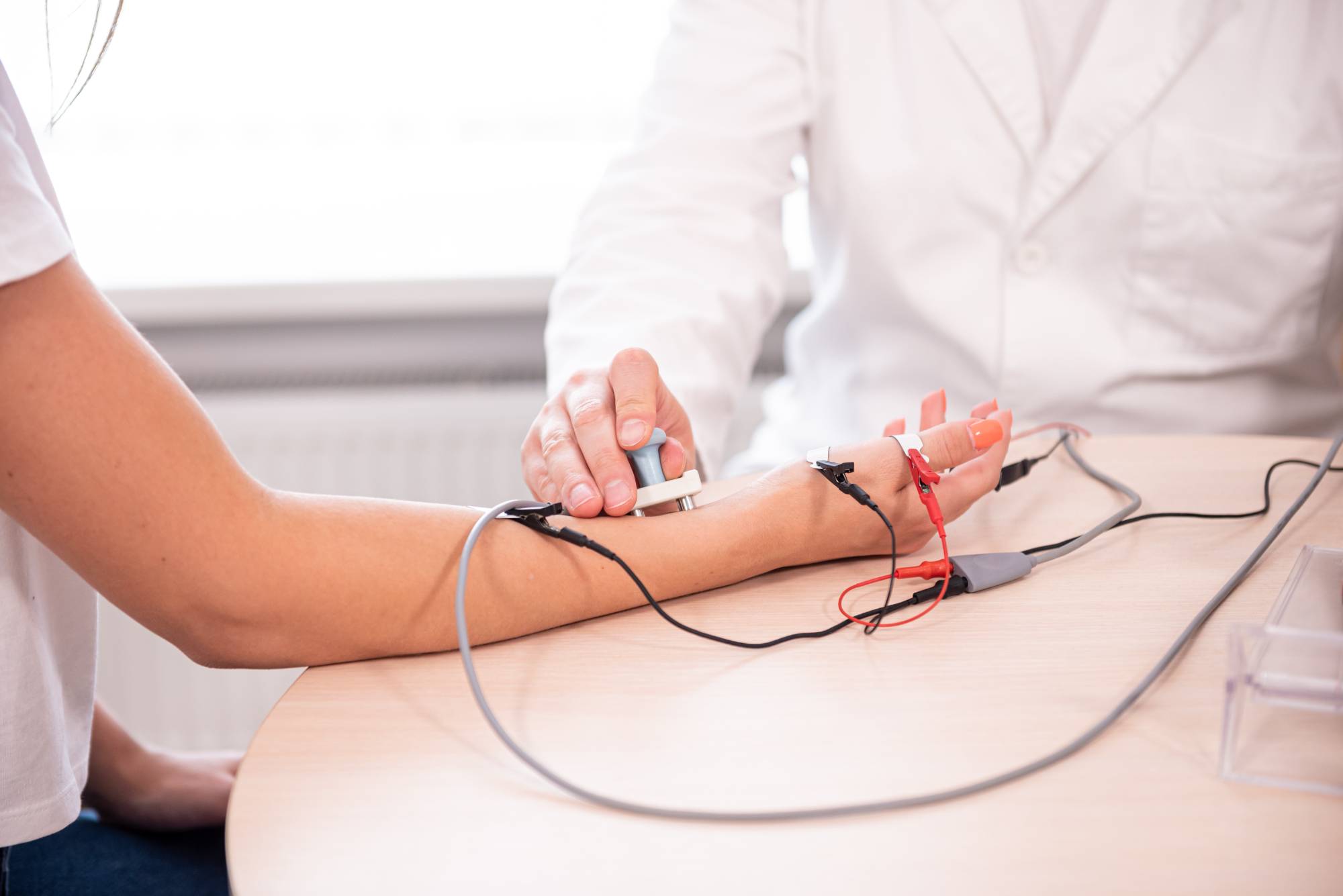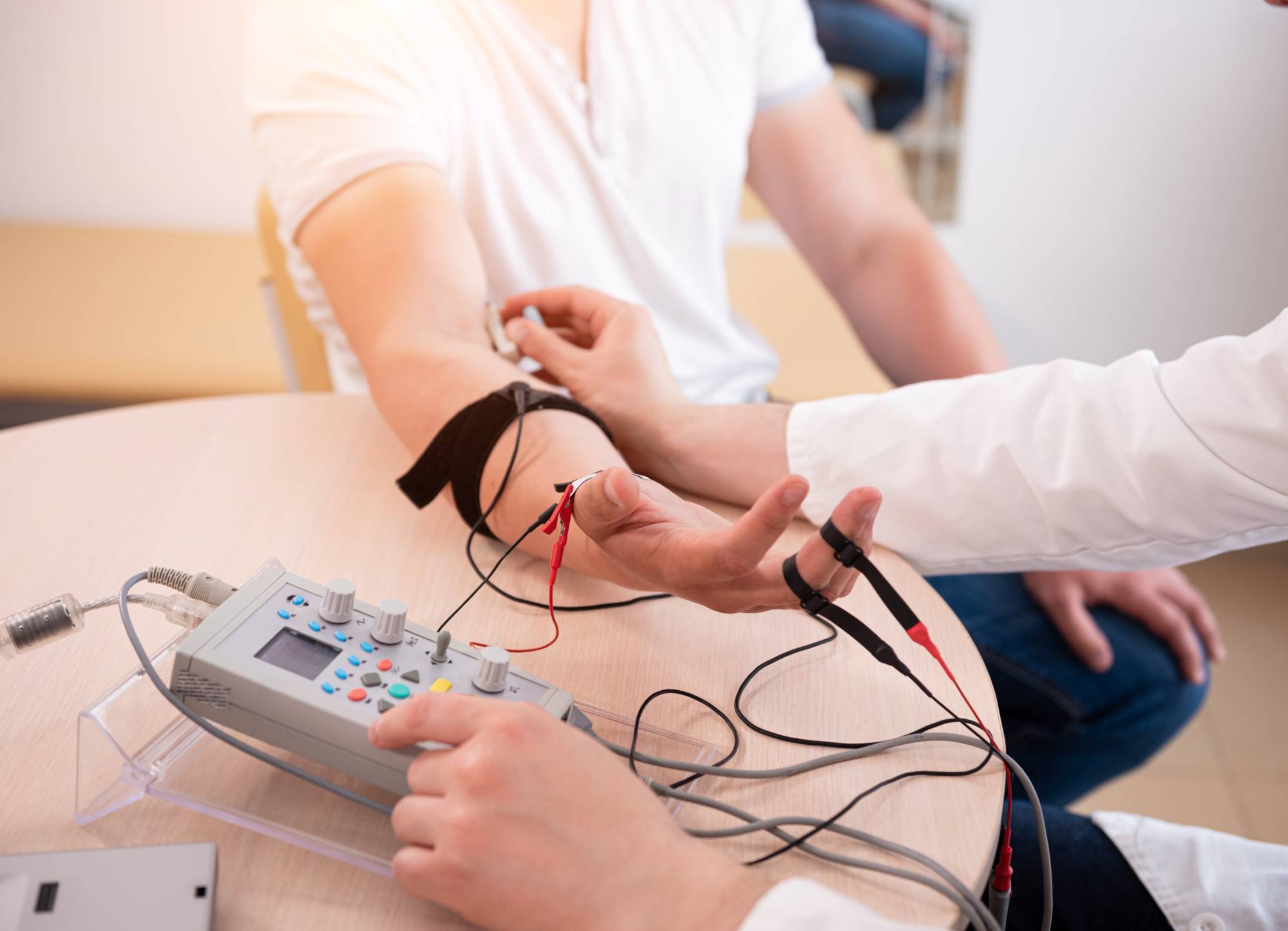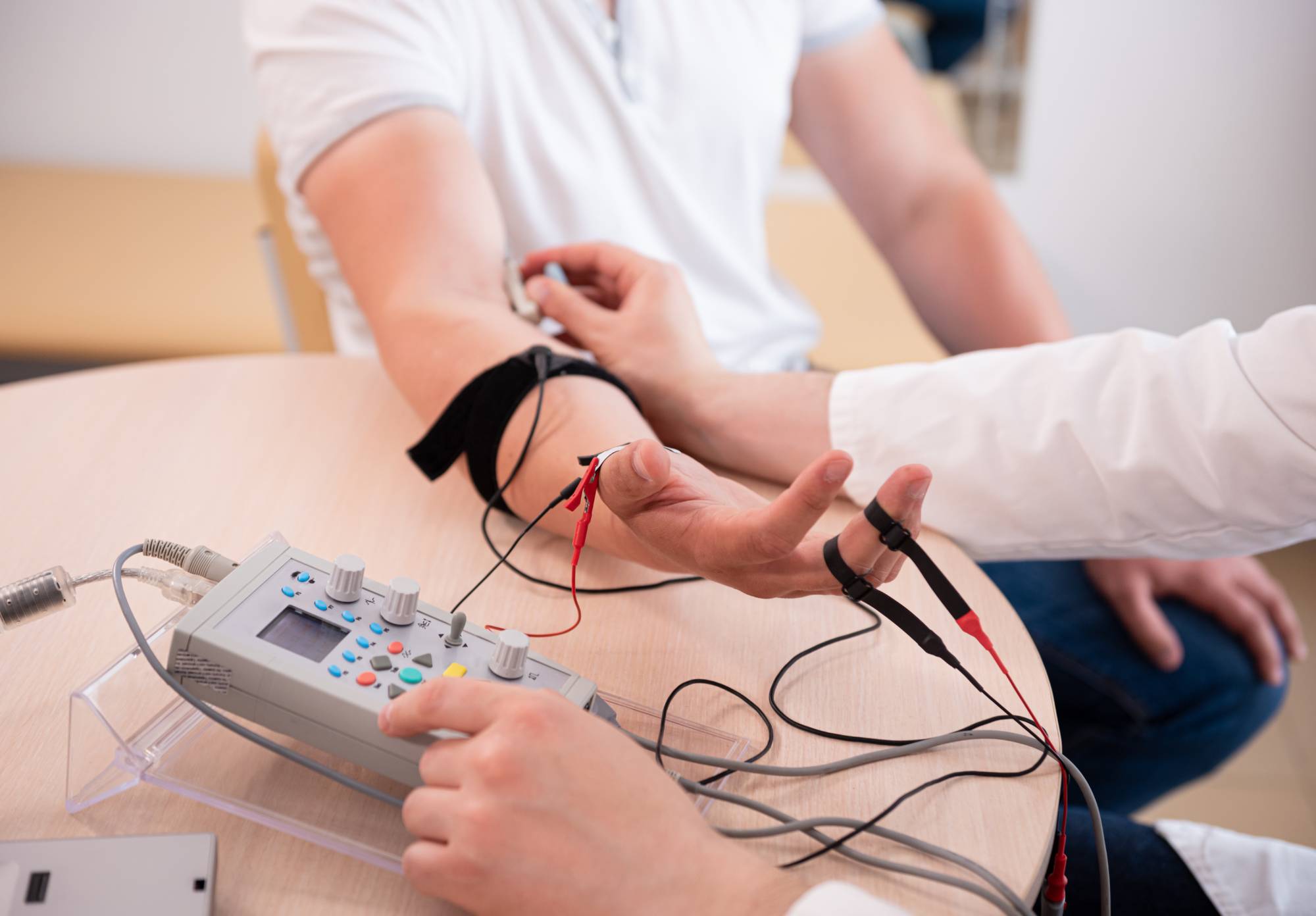Same-day EMG testing that pinpoints exactly what’s causing your numbness, tingling, or muscle weakness.

Reviews

You’ve been dealing with symptoms long enough. That tingling in your hands, the weakness in your legs, or the shooting pain down your arm deserves real answers.
EMG testing gives you those answers. Within an hour, you’ll know if you’re dealing with carpal tunnel, pinched nerves, diabetic neuropathy, or something else entirely. No more wondering if it’s serious or if it’ll get worse.
The test measures how well your nerves and muscles communicate. When there’s a problem, we see it immediately. When everything’s working normally, you get that peace of mind. Either way, you walk out knowing exactly where you stand and what your next steps should be.
NY Spine Medicine has been serving the Homestead community with accurate diagnostic testing and comprehensive pain management. Our board-certified specialists have performed thousands of EMG and nerve conduction studies.
We know the difference between a pinched nerve and something more serious. We understand that your symptoms are affecting your work, your sleep, and your daily life. That’s why we focus on getting you clear, actionable results the same day you come in.
Our facility uses the latest EMG equipment, and our team explains everything in plain terms you can actually understand.

Your EMG test has two parts, and the whole thing takes about 30 to 60 minutes. First, we do the nerve conduction study. We place small electrodes on your skin and send tiny electrical pulses to measure how fast your nerves transmit signals. You’ll feel a brief sensation, but nothing painful.
Next comes the electromyography portion. We insert a thin needle electrode into specific muscles to measure their electrical activity. The needle is about as thin as an acupuncture needle. You might feel some discomfort, but most people tolerate it well.
We get results immediately. While you’re still here, we review what we found and explain what it means for your condition. You’ll leave with a clear understanding of your diagnosis and recommended next steps for treatment.

Ready to get started?
Your EMG testing includes both nerve conduction studies and electromyography in one appointment. We test the specific areas where you’re experiencing symptoms, whether that’s your hands, arms, legs, or back.
You receive a detailed report that clearly explains your results and what they mean for your condition. We identify conditions like carpal tunnel syndrome, ulnar neuropathy, radiculopathy, peripheral neuropathy, and muscle disorders. If we find problems, we discuss treatment options right away.
Most insurance plans cover EMG testing when medically necessary. We handle the insurance paperwork and provide you with documentation you might need for work or disability claims. The whole process is designed to give you answers quickly so you can move forward with the right treatment plan.

New York:
Florida:
Support